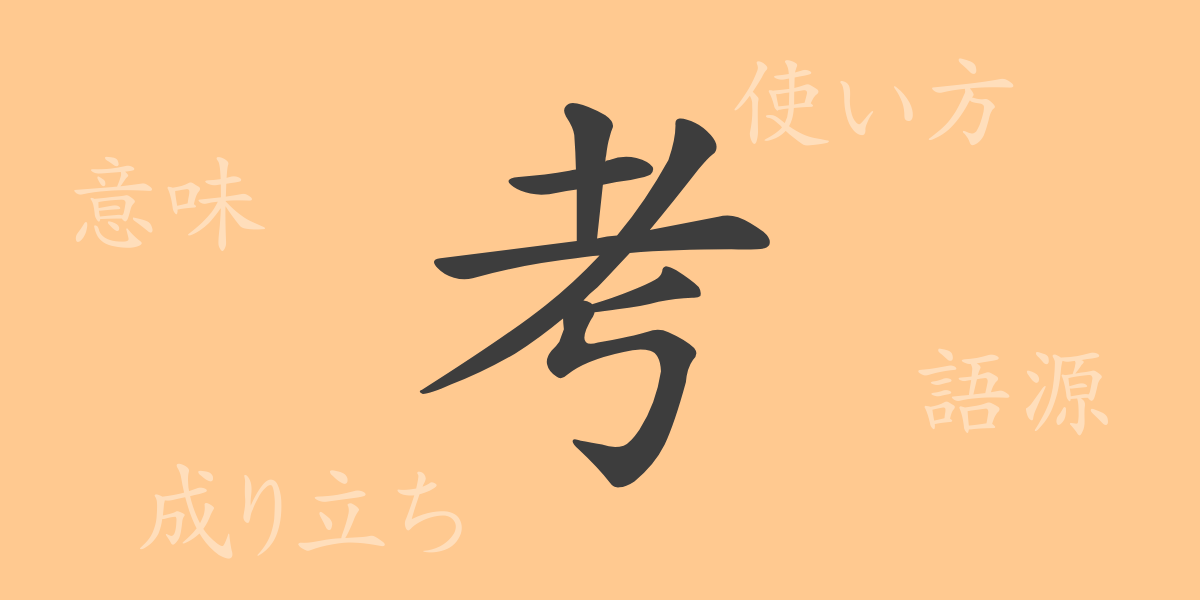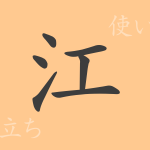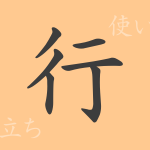One of the kanji that symbolizes the beauty of the Japanese language is “考” (こう: kou). Frequently used in daily life, this kanji carries deep meaning and history. Let’s delve into the world of “考” (こう: kou) and explore its origins and modern usage.
Origins of 考 (こう: kou)
The kanji “考” (こう: kou) developed from an ancient Chinese pictogram depicting a person combing their long hair with their hands. This act was associated with rituals of remembering the deceased, leading to the meanings “to ponder” and “to consider.” Over time, it became established as a kanji related to thinking and activities requiring thought, such as examinations.
Meaning and Usage of 考 (こう: kou)
The fundamental meaning of “考” (こう: kou) is “to think,” referring to mental activities like contemplation, reflection, and examination. It can also mean “test” or “examination.” It is used as a verb “考える” (かんがえる: kangaeru) meaning “to think” and appears in compound words like “考察” (こうさつ: kousatsu, “consideration”) and “考慮” (こうりょ: kouryo, “consideration”).
Readings, Stroke Count, and Radical of 考 (こう: kou)
Although simple in form, the kanji “考” (こう: kou) has the following characteristics:
- Readings: The on-yomi (Chinese reading) is “コウ” (こう: kou), and the kun-yomi (Japanese reading) is “かんが-える” (かんがえる: kangaeru) and “かんが-え” (かんがえ: kangae).
- Stroke Count: It consists of 6 strokes.
- Radical: The radical is “老” (おいかんむり: oikammuri), which means “old.”
Compounds, Idioms, and Proverbs Featuring 考 (こう: kou)
Compounds, idioms, and proverbs that include “考” (こう: kou) are abundant in Japanese. Here are a few examples:
- 考案 (こうあん: kouan): To come up with a new idea.
- 考古 (こうこ: kouko): The study of ancient artifacts and ruins.
- 思いやりを考える (おもいやりをかんがえる: omoiyari wo kangaeru): To understand and consider others’ feelings.
- 後生大事に考える (こうしょうだいじにかんがえる: koushoudaiji ni kangaeru): To treat something with great importance.
- 石橋を叩いて渡る (いしばしをたたいてわたる: ishibashi wo tataite wataru): A proverb meaning to act cautiously and carefully.
Conclusion on 考 (こう: kou)
The kanji “考” (こう: kou) holds more than just literal value. While its form is simple, it symbolizes crucial mental activities in our daily lives. Understanding its history and meanings helps us appreciate the depth of language. Through “考” (こう: kou), we can strive for richer expressions in our daily communication.

























